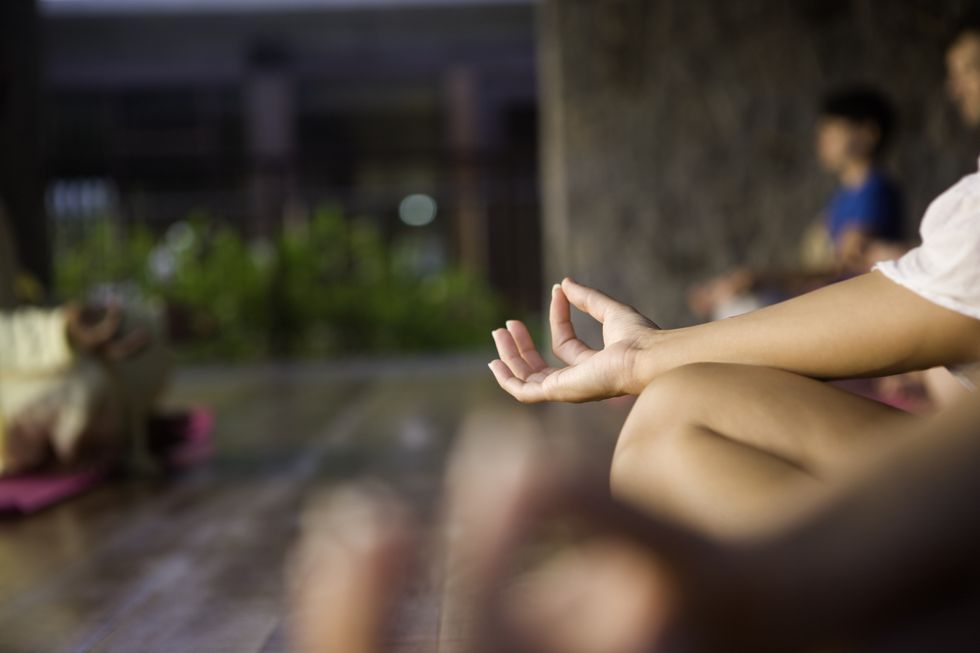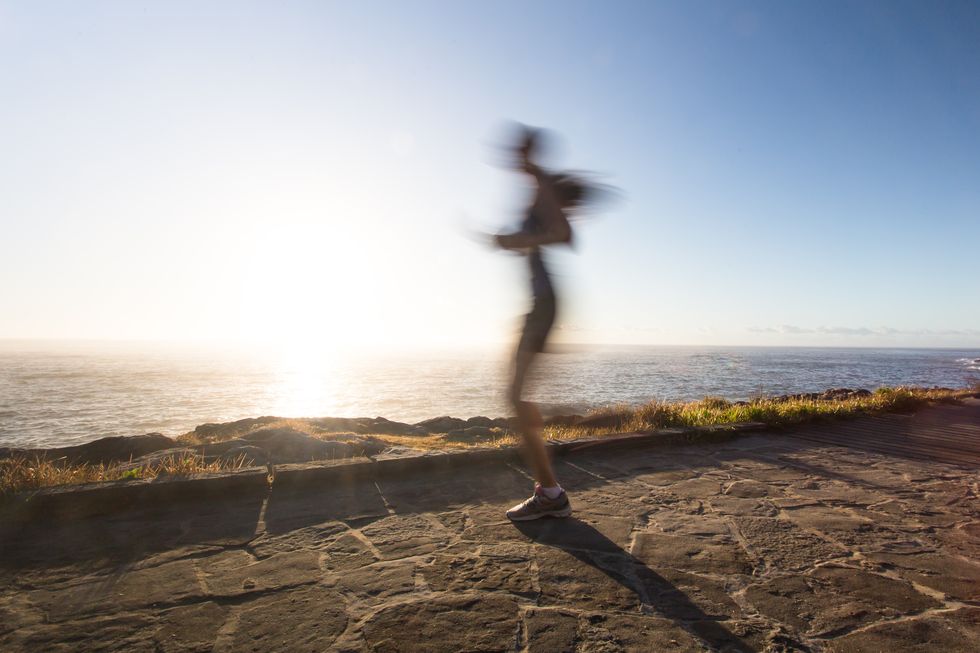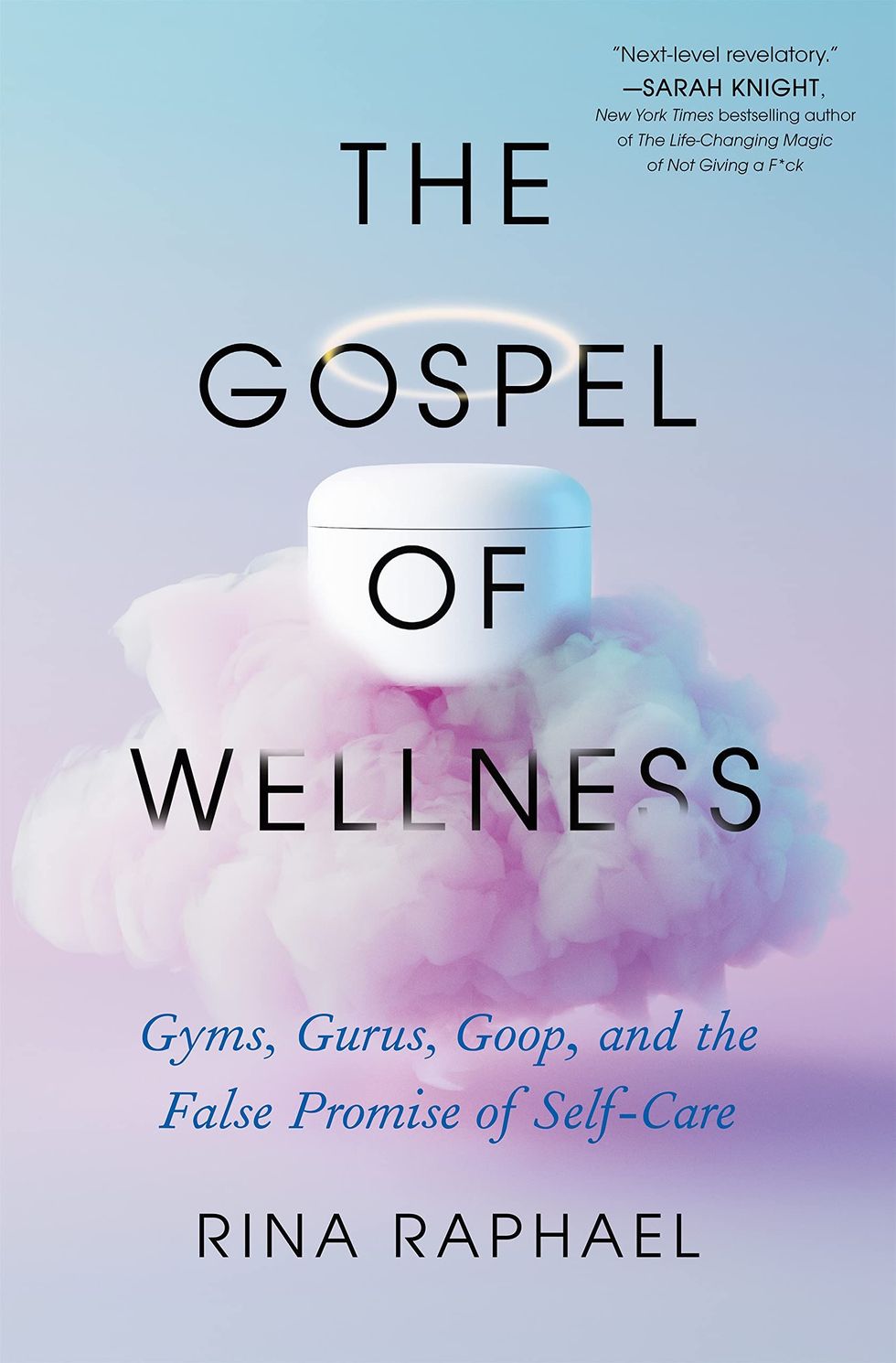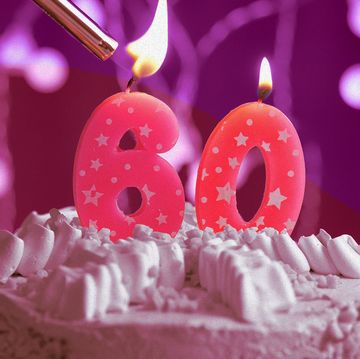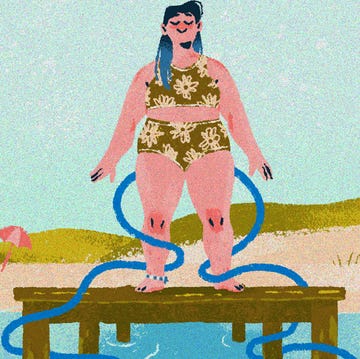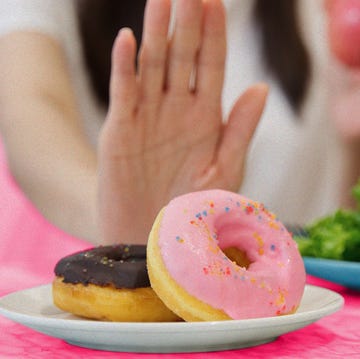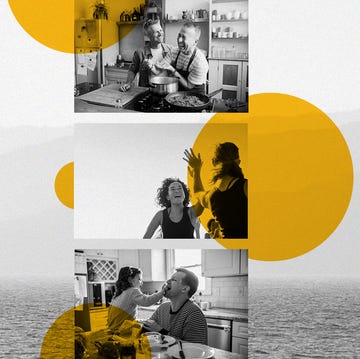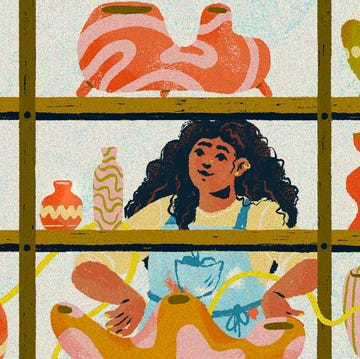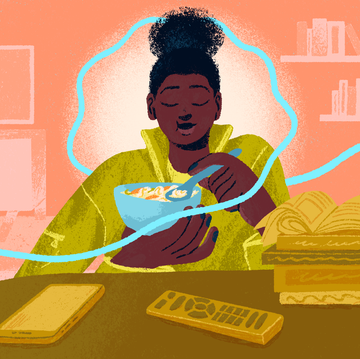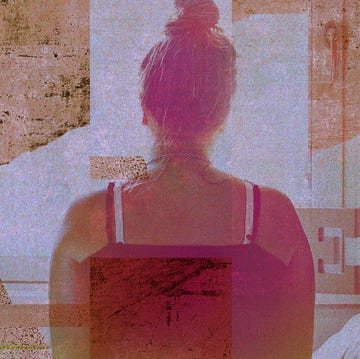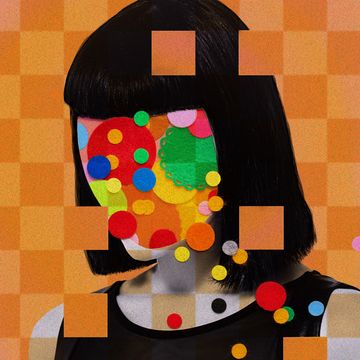I never set out to be alone. However, when I lived in the Middle East, my life was one of social isolation. The job I’d taken to help boost my husband’s career left me with little time for recreation or sleep or friends. My colleagues and I were friendly enough, but we weren’t close. Meanwhile, the eight-hour time difference made communicating with loved ones back home nearly impossible. When my spouse ended our marriage, I was desperately lonely. I’d been sober for a decade, and I feared sliding back into substance abuse.
During that time, I began experiencing chronic joint pain. After my doctor added a neck brace to the knee and wrist braces he’d already prescribed, I succumbed to his suggestion that I start attending a weekly yoga class. It was my only option. In 2005, the gyms in Doha only held “ladies’ hours” while this lady was working. I was leery. My parents owned a gym. In our family, stretching was something you did between real sports. The thing was, unlike the doctor’s braces, going to yoga actually helped resolve my body’s aches and pains.
I knew my heart was broken, but I didn’t attribute my physical pain to my emotional state. Studies have shown they are related. When we’re lonely, our pain receptors are on high alert. Because of my addiction history, I knew that my path to well-being would mean attending to both my physical and emotional needs. Over the next few years, that journey took me down a rabbit hole I never would’ve imagined.
Encouraged by the success I’d had with yoga and lacking health insurance, I landed at a number of meditation ashrams and healing communities, including the infamous Osho sex cult in India. Though I did find healing in some spaces, I also came across shady practices in the name of wellness. While I’m not surprised by the exponential growth of the wellness economy, it’s cause for concern when it comes to unlicensed practitioners without anything to back up their claims of expertise.
“When you’re feeling at a low point or vulnerable in your life, these influencers present in such a way that it seems like they understand how you feel, but then they might provide advice that’s not accurate,” says cognitive behavioral therapist Jennifer Guttman. “There are no regulations at all on who can claim to be an expert.”
In the depths of my despair, I didn’t investigate the unsavory wellness groups I joined. I just wanted to feel better. It was only long after my stay at Osho that I discovered the murderous crimes carried out in the name of the eponymous guru. And while my particular story is not common, the misery that drove me to seek out alternative healing is more prevalent than ever now.
Before the pandemic, U.S. Surgeon General Dr. Vivek Murthy was already calling loneliness an “invisible epidemic.” Guttman notes that there has been a huge uptick in recent years in cases of depression, including a 60 percent leap in suicide rates for adolescents and 27 percent for adults.
The timing could not be worse. Last year, the Association of American Medical Colleges released data projecting a massive shortfall in physicians for the year 2034. “We’ve been seeing this coming for 20 years,” says Koshin Paley Ellison, a psychotherapist and co-founder of the New York Zen Center for Contemplative Care. “The health care system has become an industrial complex. It’s mostly for profit.”
When I was going through my divorce 12 years ago, I was told there was a six-week wait to see a psychiatrist in my health care plan. The same day, however, I was able to join a meditation group. There, the teacher offered the ultimate drug: He listened. Though that particular group has since dissolved over allegations of sexual misconduct, I was lucky. Between my limited resources and natural skepticism, I didn’t dive deeper. I also didn’t have 24-7 access to fresh social media content.
“The unregulated wellness industry is a fertilized petri dish for charismatic leaders to bloom and organize resources, not based upon how competent they are or who’s assessing their work, but based upon how well they look on Instagram,” says Matthew Remski, a cult researcher and co-host of the podcast Conspirituality, which examines charismatic wellness leaders and their followers.
“Social isolation is a symptom of depression, and depressed people turn to their phones,” Guttman says. “When you turn to your phone, you’re more vulnerable to social media influencers because that’s where you get your social outlet.”
In The Gospel of Wellness, author Rina Raphael writes that she’s not surprised by the confluence of wellness and “what were once considered ‘woo-woo’ convictions.” When I recently spoke to her on the phone, she was quick to point out that the causes are “multifactorial,” and loneliness isn’t the only reason people seek healing or community.
“I’ve never really trusted doctors,” says Matthew Pinkowski, a 45-year-old compliance manager from Florida who credits alternative therapies with improving his mental health. “My hypnotherapist really changed my life. We did breathing, singing bowls, crystals. All that stuff helped me get over anxiety. Then, the pandemic hit, and I went back for a tune-up. The therapist had gone full QAnon, telling me about underground cities and how Katy Perry eats babies.” Pinkowski was not convinced and moved on.
Unfortunately, the same wasn’t true for my 85-year-old father. Before opening his gym in 1978, he was a science-minded metallurgical engineer who lectured me about greenhouse gases. In September 2021, dad had a seizure in a downtown Pittsburgh parking garage. As doctors began testing for possible causes, my sister and I discovered he’d been treating his prostate problems at home with piles of supplements and regular injections administered by a vitamin salesman he knew from the gym.
By all objective measures, my father was lonely. We were well into the second year of the pandemic, and he’d been living alone since my mother passed away seven years earlier. Whether the injections helped or hurt him would be impossible to say now. Once we could take charge of his treatment, my dad was too weak for the surgery he needed.
When dad died, among the various supplement concoctions littering his kitchen table was a one-page script he’d apparently been using to call government representatives and demand an end to research that “grafted skin from aborted fetuses on rodent babies.” A simple search online showed that the language was a gross misrepresentation of the research.
Today, I have nothing but compassion for my father and all of us who simply want to feel at ease in our bodies. My quest for wellness spanned many years and continents before I recognized I’d turned my search into a self-sabotaging hunt for what was wrong with me. As Paley Ellison said in our conversation, “We can use anything as medicine or poison.” The trick I discovered was to start looking at what was right.
L.L. Kirchner is a Florida-based writer who has contributed to The Rumpus, The Washington Post, Dame Magazine, Salon, Business Insider, and Bomb Magazine. Her new book, Blissful Thinking: A Memoir of Overcoming the Wellness Revolution, is scheduled for release in September.
Get Shondaland directly in your inbox: SUBSCRIBE TODAY

